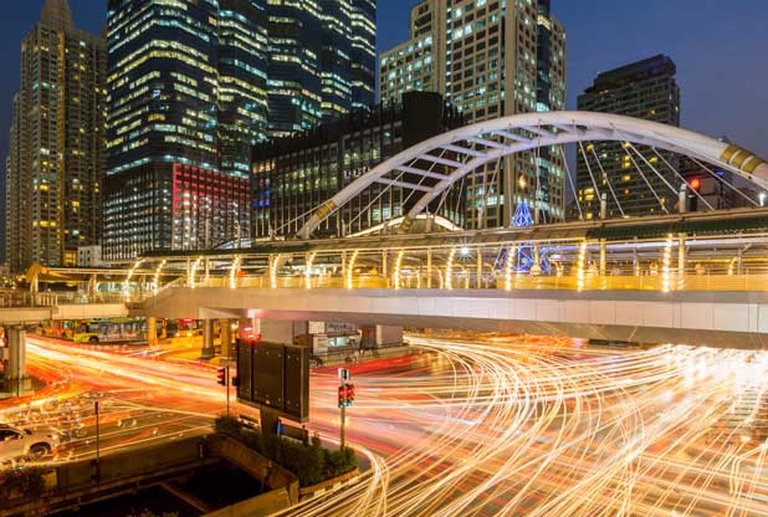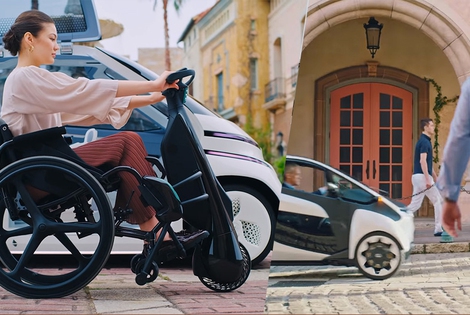
Milan has announced one of Europe’s most ambitious mobility schemes, known as Strade Aperte (open roads). Its goal is to reduce cars in phase 2 of the lockdown by increasing bike lanes and pedestrian areas.
The increase in shuttle buses and parking lots (as a measure to control traffic), the design of new information systems to analyse and quantify the positive effects of multimodality and encourage people to change their travelling habits, knowing how to recognise situations that can cause traffic jams and the adoption of measures to prevent them
The increase in shuttle buses and parking lots (as a measure to control traffic), the design of new information systems to analyse and quantify the positive effects of multimodality and encourage people to change their travelling habits, knowing how to recognise situations that can cause traffic jams and the adoption of measures to prevent them and, finally, the improvement of road signage in cooperation with police forces.

These are the four fields in which Toyota mobility foundation will operate to reduce and optimise traffic in Bangkok, Thailand’s most densely populated and congested city. The results will be made public only at the end of the programme, in December 2016. Established in August 2014, the foundation cooperates with non-profit organisations, research institutes, and other partners to apply the knowledge of the Japanese car company to the issues related to global mobility, safety, technology and the environment.

The foundation, in collaboration with Chulalongkorn University, joins the World business council for sustainable development in an effort to realise a plan for traffic management in Sathorn road, one of the most congested streets of the Thai capital. The project, that will require about a year and a half to be completed as well as investments accounting for 3 billion euros, should create a road map aimed to optimise and manage traffic.

“The launch of the pilot program in Thailand,” explained Akio Toyoda, Chairman of the Board of TMF and President of Toyota Motor Corporation, “brings us closer to our goal of advancing a true mobile society by helping people move, grow and explore in a world that is comfortable, safe and clean”. How will it end up? The updated programme is available here.
Siamo anche su WhatsApp. Segui il canale ufficiale LifeGate per restare aggiornata, aggiornato sulle ultime notizie e sulle nostre attività.
![]()
Quest'opera è distribuita con Licenza Creative Commons Attribuzione - Non commerciale - Non opere derivate 4.0 Internazionale.
Milan has announced one of Europe’s most ambitious mobility schemes, known as Strade Aperte (open roads). Its goal is to reduce cars in phase 2 of the lockdown by increasing bike lanes and pedestrian areas.
Formula 1, the world’s most important auto racing championship, has decided to turn the page and aim for carbon neutrality with the support of its teams, drivers and the whole racing circus.
Toyota and LifeGate began telling the story of hybrid mobility back in 2006, now, on the road to the Tokyo 2020 Olympics, they’re still treading the path of sustainable mobility. Here are the main steps of the journey.
Germany’s first solar bicycle lane could be the prototype for the roads of the future. The photovoltaic tiles melt snow and ice, and are capable of absorbing noise.
The Vespa is back in an electric version. Production has just started and the first models can be reserved online starting from October.
The city of Utrecht, in the Netherlands, is home to a bridge for cycling and walking that stretches over roof garden of a Montessori school. This project enhances practicality and will allow families to bring children to school by bike, passing through green areas. Despite their functionality, bridges are often seen as an infrastructure that is
The Lego hair bike helmet is the latest Internet craze. For now it’s just a prototype but production on a large scale will probably start soon.
Just as fires often give way to new growth, after the Dieselgate scandal, which saw Volkswagen cheating on US emission rules, the German car manufacturer radically changed course, beginning to focus on sustainable mobility. The German car company aims to propose thirty zero-emission models and produce at least one million battery electric vehicles by 2025. An ambitious mission
Sustainable, two-wheel mobility is triumphing in Copenhagen. After years of investments, policies, and infrastructural changes, bikes now outnumber cars in the city centre. The website Copenhagenize has released data linked to the number of vehicles entering the city centre, which are monitored by the city’s administration on a daily basis. Last year, 265,700 bikes have entered







